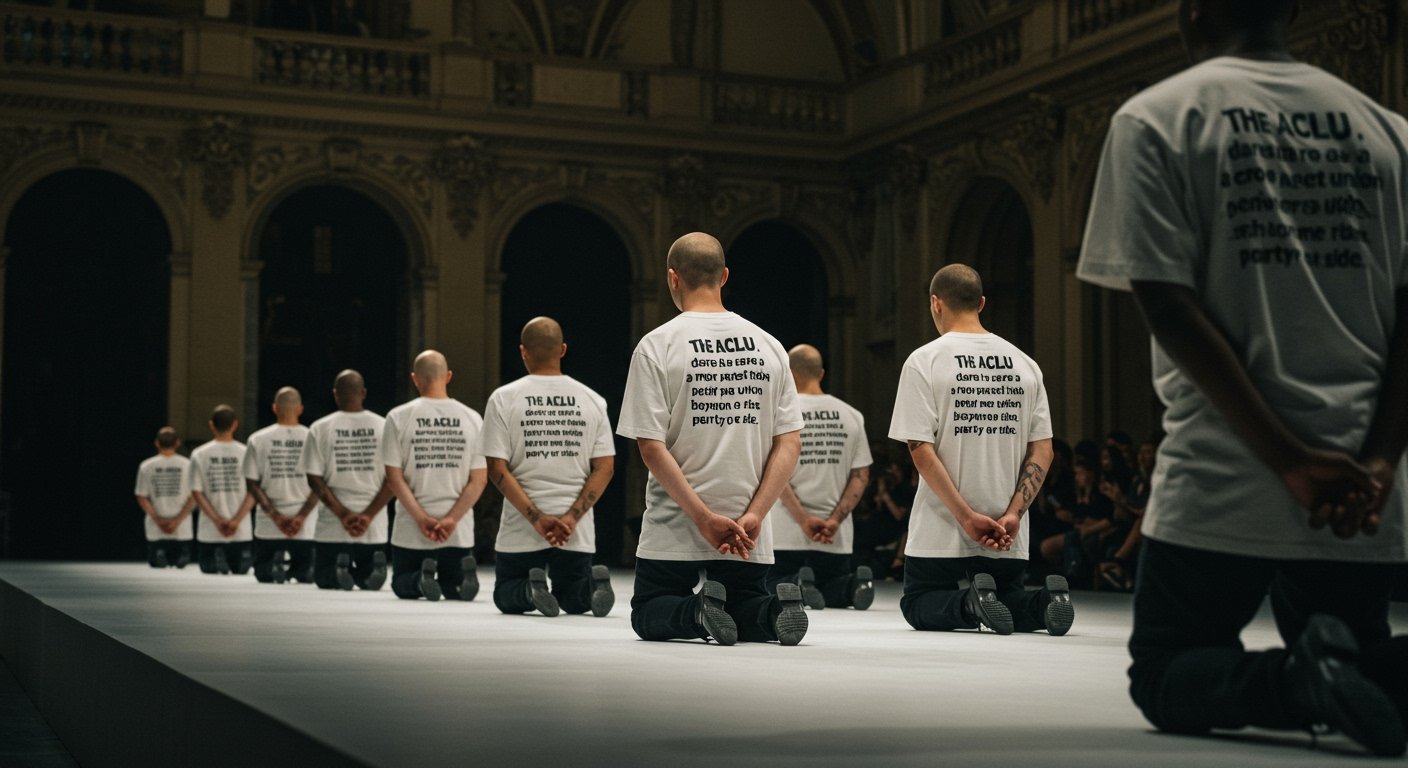Paris, France – California-based fashion designer Willy Chavarria used the global stage of Paris Men’s Fashion Week on June 27, 2025, to deliver a stark and symbolic protest against immigration enforcement actions, specifically referencing Trump-led ICE raids impacting his home state. The runway show, held at the prestigious Salle Pleyel, transformed into a poignant tableau highlighting themes of confinement and the treatment of immigrants in the United States.
A Visual Statement on the Runway
Chavarria’s presentation featured 35 male models who appeared with shaved heads, kneeling with their hands clasped behind them. This striking pose was intended to evoke imagery resembling photos of prisoners held in El Salvador’s CECOT prison, a high-security facility known for its controversial conditions. The deliberate visual parallel drew a connection between the designer’s critique of U.S. immigration practices and broader concerns about state power and detention.
The models wore baggy white t-shirts, a garment choice often associated with detention uniforms. These shirts were created in collaboration with the American Civil Liberties Union (ACLU) and bore a powerful, politically charged message: “The ACLU dares to create a more perfect union — beyond one person, party or side.” This explicit text underscored the protest’s focus on civil liberties and systemic issues, aligning Chavarria’s artistic statement with the advocacy work of a prominent civil rights organization.
The Soundtrack and the Subtext
The atmosphere of the show was further shaped by the musical accompaniment. José Feliciano’s classic song “California Dreamin’” played as the models made their appearance. The choice of this iconic tune, traditionally associated with aspirations of a better life and the promise of California, created a layered effect, juxtaposing the dream with the harsh reality depicted on the runway.
According to a press release obtained by the Los Angeles Times, Chavarria articulated the core purpose of his presentation as an effort to highlight the “dehumanization of how immigrants are being treated in the United States.” This statement clarified the designer’s intention to use his platform to raise awareness about the human cost of immigration policies and enforcement actions.
Reactions and Reporting
The bold political statement did not go unnoticed. Reports indicate that El Salvador’s government, including President Nayib Bukele, was reportedly displeased with the protest, particularly the visual reference to the CECOT prison. This reaction highlights the sensitive nature of the imagery employed and its potential to spark international commentary and diplomatic friction.
The news of Chavarria’s impactful protest was reported from Los Angeles, underscoring the connection between the designer’s California roots, the issues he was addressing, and the global stage of Paris Fashion Week. Reporting drew on information from outlets including the Los Angeles Times and The Telegraph, reflecting the story’s reach across both U.S. domestic and international news landscapes.
Fashion as a Platform for Dissent
Willy Chavarria is known for his designs that often blend elements of workwear, Chicano culture, and high fashion, frequently embedding social commentary within his collections. His choice to use a prominent slot at Paris Men’s Fashion Week, a key event in the global fashion calendar, amplified his message significantly.
The protest serves as a potent reminder of the increasing intersection between the fashion world and political activism. Designers like Chavarria are leveraging their visibility and creative expression to challenge policies and spark conversation on critical societal issues, turning the runway into a platform not just for clothing, but for conscience.





